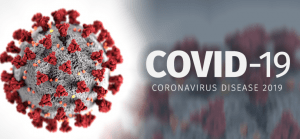The year 2020 will be an unforgettable one as most of the year was spent in lockdown due to the emergence of SARS-CoV-2 better known as Covid-19. Covid-19 was first identified in the Wuhan, Hubei Province in China in December of 2019. According to the World Health Organization (WHO), the first reported cases of Covid-19 were thought to be pneumonia of some unknown origin and it wasn’t until January 12th of 2020 that China publicly shared with the world the genetic sequence of Covid-19. Since the emergence of Covid-19, it has rapidly spread around the world affecting every country. Some of the common symptoms associated with Covid-19 are fever, cough, headache, and new loss of taste or smell. While there was very little knowledge of Covid-19 in the beginning, we quickly learned that masks and social distancing were the best way to protect individuals and prevent the spread of Covid-19.
Of all the countries in Africa affected by Covid-19, South Africa was hit the hardest. As of March 8, 2021, South Africa has had 1,521,706 confirmed cases of Covid-19. Morocco that second most affected country in Africa had 486,325 confirmed Covid-19 cases as of March 8, 2021. Currently, the CDC has placed South Africa on the Covid-19 level 4, the highest level, and urges all travelers to avoid the region, and if they must travel to South Africa to wear a mask at all times and maintain social distancing.
South Africa is a very complex nation made up of several different ecosystems as well as several different ethnic groups. It has a population of roughly 56 million individuals with the majority of the population being black South Africans, followed by white South Africans. Until 1994 South Africa was under apartheid which segregated blacks and other non-white South Africans from white South Africans. Because of the apartheid, black and other South Africans of color were forced into poverty, something a lot of them still have not recovered from. South Africa also has a large percentage of their population living with HIV, approximately 7.5 million people; of the 7.5 million living with HIV, black South Africans are disproportionally affected by the virus.rted on March 6 of 2020. There were 756 new cases reported for Tuesday March 30, 2021. The age group with the highest prevalence of Covid-19 is 60 to 69 years old. It has also been discovered that individuals who are HIV positive or have active TB are at an increased risk of death from Covid-19. The highest percentage of cases come from the Gauteng region.
With the emergence of Covid-19 in South Africa, the country’s leaders implemented an alert system with 5 different levels with 1 being the least restrictive and 5 being the most restrictive. From March 26 to April 3 of 2020 the country went on ‘alert level 5’ which resulted in a full lockdown. During this time of full lockdown travel was banned except for essential travel, retail stores were closed, alcohol sales were prohibited, and people were to remain at home and social distance from other people. The full lockdown was able to slow the spread and decrease the Covid-19 incidence rates, and the country was able to slowly decrease their alert level back down to a level 1. The country did experience a second wave of Covid-19 in December of 2020 and had to increase its alert level from a 1 to a 3 which included restrictions on activities including in the workplace and socially. With such strict lockdown measures, South Africa was able to show the world that implementing such measures works to slow the spread of Covid-19.
Covid-19 has taken a toll on the South African healthcare system. Prior to Covid-19 most public sector healthcare facilities were overextended, understaffed and poorly resourced. With the emergence of Covid-19, resources were stretched even thinner. Public hospitals were running out of beds, doctors and other staff were being overworked, and when the country was in their tightest lockdown people in rural areas had difficulty accessing care all together.
Out of South Africa’s total population of 56 million people, only 263,878 people are fully vaccinated. So far, the only people being vaccinated against Covid-19 in South Africa are their health care providers. Once healthcare workers are immunized the country plans to do a phased rollout of the vaccine to the rest of the population. Along with healthcare workers, South Africa should have included individuals with HIV or TB as some of the first people to be vaccinated since they are more likely to have poor outcomes if they were to catch Covid-19. The second phase of their vaccine rollout should include the elderly, and the third should include the rest of the population. The best way for South Africa to get their vaccine campaign and rollout messages out to their citizens is through television, radio, and advertisement including internet.
While South Africa has fared better than some countries when it comes to Covid-19, it was still the hardest hit country in Africa. As case numbers continue to rise the South African public health care system struggles to keep up. While the country was able to slow down the spread of Covid-19 through strict lockdown, they are continuing to see new cases on a daily basis. Since South Africa has such a large population living with TB and HIV, their most effective strategy at combating Covid-19 will be through vaccinating their population.






There are no comments yet...Kick things off by filling out the form below.